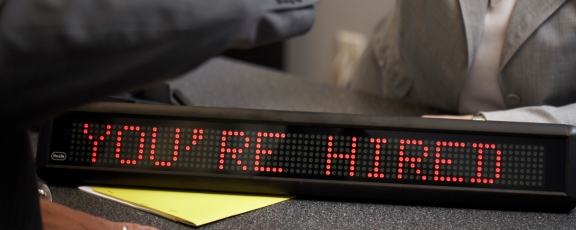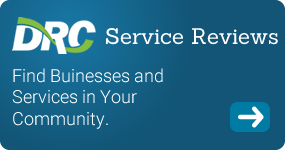
- Published: 11 September 2014
In a competitive job market, people with disabilities often have the additional task of convincing an employer that they can perform the job duties with reasonable accommodations just as anyone else can. And every job seeker knows that once you get your foot in the door, having a great interview often means the difference between getting employed and getting ignored.
Before the interview:
Do your research. Gather as much information as possible before heading in for an interview, including asking the scheduler questions about the interview format. Visit the company’s website and understand its mission, vision and values, and learn about any programs or initiatives that the company is currently involved with, especially any in which you could participate.
Review the Job Description. Make a list of all the major job functions and write examples of how you have performed those responsibilities during your professional career and life experiences. Remember that your experiences are not only paid work experiences but can also be through education, volunteering, and relevant hobbies.
Practice! Mock interviews are a great way to prepare for the interview process. Have a friend, family member or acquaintance help you run through some common interview questions. Just don’t practice so much that you memorize the questions and sound robotic and rehearsed rather than relaxed and natural during the interview. Consider video or audiotaping mock interviews to see and/or hear how you present yourself. Notice your weaknesses and strengths as you interview and make continual improvements.
During the Interview
Arrive Early. Spend the extra time reviewing your resume and doing whatever you need to so that you are calm and focused when you enter the interview room.
Anticipate Perceptions. Remember that first impressions matter, and that your interview starts as soon as you enter the building. Interviewers tend to rate personality, attitude, and work ethic as more important than skills and abilities because the latter can be taught whereas the former cannot. So don’t be afraid to show off your character and personality!
Listen to the Interviewer. A lot of times the interviewer will provide information on what the job entails and what he or she is looking for in a candidate, which will help you tailor your answers to what the interviewer has shared with you. Keeping your resume in front of you helps you refer back to your experiences, education, and skills during the interview.
Stay Positive. When asked about gaps in unemployment or reasons for leaving positions, be brief and honest. If there are any positions from which you were terminated, be honest and discuss what you learned from the experience so it will not happen again at another job. Never speak negatively of former employers.
Ask Questions! This is a final opportunity to make a good impression. Asking questions lets the interviewer know that you are genuinely attracted to the job and that you are trying to figure out whether the company is a good fit for you. The key is to have the confidence to ask these kind of questions in a respectful way.
If you need accommodations during the interview, set up the request with HR or the hiring manager prior to the interview.
During an interview, an interviewer cannot ask specific disability related questions. If this happens, redirect the interviewer to focus on your skills and abilities for the position for which you are interviewing. Of you do not need an accommodation before or during the interview, wait until the job offer to ask about accommodations. You can also wait until you have started working before requesting accommodations to be certain of the specific accommodations you may need.
Interviewing is an art and a science. Although the job market is tough and the economy is always changing, these tips will give you the employment edge. Good Luck!


